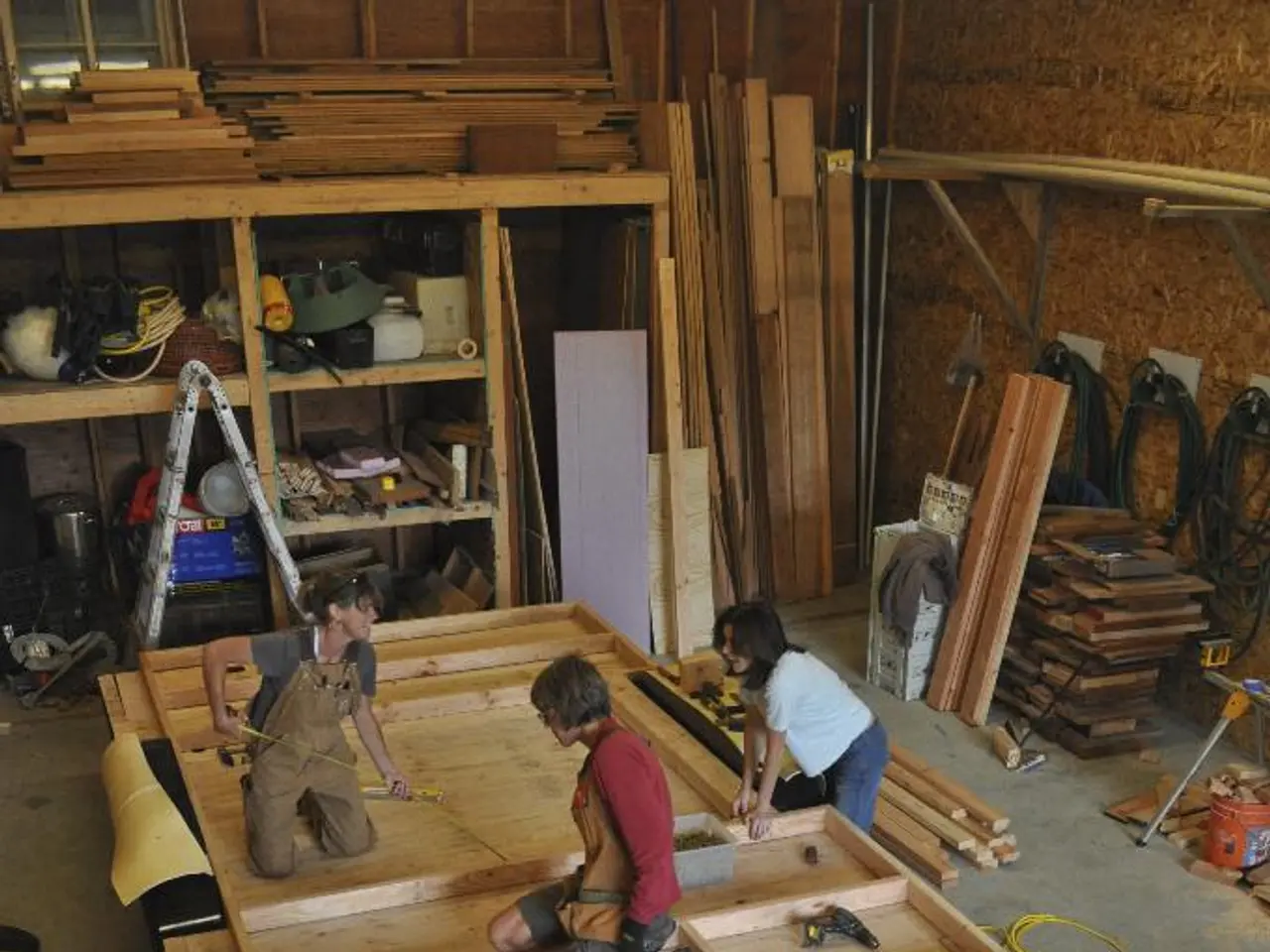Increase in inclusiveness initiatives by more than 30% within various structural sectors
In a significant stride towards fostering a more inclusive and respectful work environment, the Fairness, Inclusion, and Respect (FIR) Programme has witnessed an impressive increase in participation in 2024[1]. This surge in engagement mirrors the growing commitment within the built environment sector to addressing workplace culture issues surrounding inclusion and respect.
According to the latest findings from the FIR Culture Impact Report, released by the Supply Chain Sustainability School[6], out of 1,689 respondents, there was a 32.7% increase in participation compared to 2023[1]. This uptick has played a crucial role in advancing diversity by fostering more inclusive, respectful workplaces where different social groups—such as those based on gender, ethnicity, and neurodiversity—are better understood and supported.
Key impacts of this increased FIR engagement on diversity in the sector include:
- Improved cultural awareness and inclusiveness: FIR supports understanding diverse social environments and helps unlock employee potential by promoting fairness and respect[5]. This contributes to better inclusion of marginalized groups, such as LGBTQ+ and neurodiverse employees, as highlighted by participants sharing their experiences[5].
- Alignment with broader DE&I efforts: The FIR initiative complements expanded Diversity, Equity, and Inclusion (DE&I) strategies seen in leading organizations, which emphasize fairness (equity), belonging (inclusion), and diverse perspectives to enrich work and innovation[2]. Such comprehensive approaches bolster systemic inclusivity within teams and projects in the built environment.
- Industry-wide momentum and leadership commitment: Industry-led initiatives like FIR are part of a wider trend in construction and built environment firms to embed respect and inclusion in their policies and leadership practices[1][4]. This strategic focus helps mitigate discrimination risks, promote equitable career advancement, and foster zero-tolerance for harassment.
- Better workplace experience and retention: Companies committed to FIR and related programs report stronger inclusive cultures valued by employees, translating into improved recruitment, retention, and productivity of diverse talent[3].
The FIR Programme, partly funded by the Construction Industry Training Board (CITB), uses workshops, webinars, e-learning modules, and a resource library to facilitate these positive changes[7]. Anonymous feedback gathered further highlights the FIR Programme's influence. One participant said: 'The FIR Programme has given me a deeper understanding and knowledge base of issues that can affect my colleagues and the workforce that we supply to our clients.'
Moreover, the survey found that 519 respondents (31% of total) have shared their experiences as FIR Ambassadors[1]. Notably, 84% of FIR Ambassadors feel respected by their manager or supervisor, in contrast to 73% of non-Ambassadors[1]. Additionally, 75% of FIR Ambassadors would recommend their workplace as a great place to work, compared to 65% of non-Ambassadors[1].
The findings of the full FIR Culture Impact Report can be found here[6]. As the FIR Programme continues to positively impact individuals, businesses, and training, it underscores the importance of ongoing efforts to promote fairness, inclusion, and respect within the built environment sector.
- In the realm of housing, fostering inclusivity is crucial to building communities where everyone feels a sense of belonging.
- A sustainable lifestyle can be enhanced through fashion-and-beauty brands that incorporate ethical sourcing and representation of diverse models.
- Creating pet-friendly housing and public spaces encourages a greater sense of community and reinforces the importance of relationships with our furry companions.
- Food-and-drink establishments that cater to various dietary restrictions and preferences demonstrate a commitment to inclusivity, making them cherished destinations for travelers and locals alike.
- As more homeowners invest in home-and-garden solutions that promote sustainability, they contribute to a greener planet, fostering a respectful relationship with our environment.
- In the automotive world, car manufacturers that prioritize safety features catering to diverse users (such as seniors, pets, and the disabled) demonstrate a commitment to inclusivity and social responsibility, making shopping for a vehicle a more inclusive experience.






